FACT CHECK: Both sides loose with facts in health debate
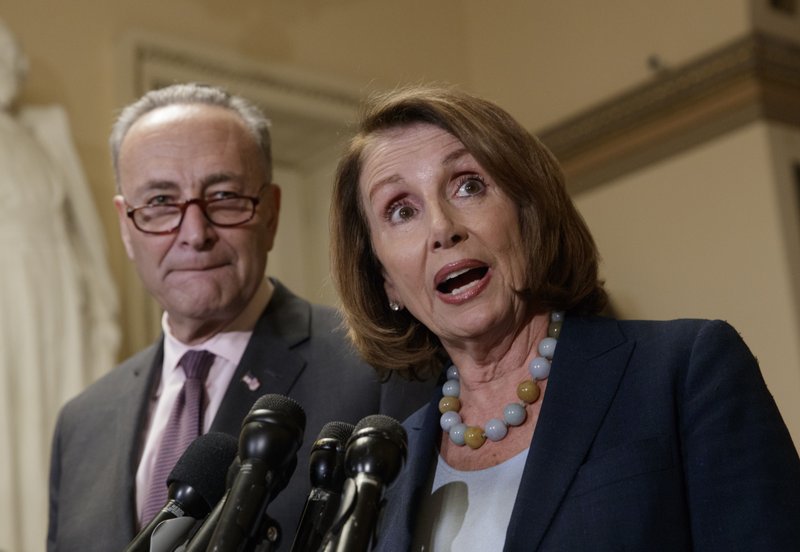
The Congressional Budget Office report on a Republican health care bill has set off an intense reaction in Washington, and some on both sides of the debate are playing loose with the facts. Republicans are overlooking President Donald Trump‘s promise to deliver “insurance for everybody,” which the CBO makes clear will not happen if the legislation becomes law. Democrats are assailing Republicans for “attacking the messenger,” seeming to forget all the times they assailed the budget office themselves. The Congressional Budget Office is respected for nonpartisan rigor in its estimates of the costs and impacts of legislation. But no projection is infallible, particularly when it comes to large, complex programs. For example, the agency in 2010 overstated the number of people expected to buy insurance under President Barack Obama’s health care law, misjudging how many would join because of the threat of tax penalties. Yet, CBO’s neutrality has been valued by both parties — though not always at the same time. It depends whose ox is being gored. A look at statements in the debate and how they compare with the CBO’s estimates and the underlying facts: TRUMP: “We’re going to have insurance for everybody. There was a philosophy in some circles that if you can’t pay for it, you don’t get it. That’s not going to happen with us.” — To The Washington Post, Jan. 15. CBO: It estimates the bill would leave 14 million fewer people insured in the first year, 24 million fewer by 2026. In the first year, the biggest reason more people are uninsured would be repeal of penalties Barack Obama’s law imposes on those deemed able to afford insurance but who don’t buy it. Still others would decide to forgo coverage because of higher premiums or do without Medicaid. In following years the main reason for a drop in the number of insured would be that the Republican bill scales back Medicaid for low-income Americans. Altogether, CBO estimates 52 million people would be uninsured by 2026, a vast distance from “insurance for everybody.” ___ SEN. CHUCK SCHUMER, Senate Democratic leader: “CBO is virtually unassailable. Everyone, Democrats and Republicans, whether it be George Bush, Barack Obama or anyone else has gone along with CBO. …CBO speaks the truth. They’ve been speaking the truth for decades and to try to attack CBO is simply attacking the messenger.” — Comments to reporters Tuesday. REP. NANCY PELOSI, House Democratic leader, on Republican reaction to the CBO: “Some of them are trying to pin a rose on this report and make it sound like it’s a good thing and the others of them are trying to discredit the CBO, but it’s completely wrong, completely wrong. … Numbers are quite elegant things, you know. They speak very clearly.” — Comments to reporters Tuesday. THE FACTS: Democrats have not hesitated to attack this messenger when its conclusions have not suited them. “The Congressional Budget Office never gives us any credit,” President Obama said in 2009 when the CBO pointed to the expense of Democratic health overhaul proposals. Complained Pelosi at the time: “The CBO will always give you the worst-case scenario.” Again in 2014, Pelosi did not consider CBO’s numbers “elegant,” or correct, when they forecast job losses from a Democratic effort to raise the minimum wage. She accused the CBO of making arguments that “contradict the consensus among hundreds of America’s top economists” and said it “ignored new perspectives in the wide array of analysis on the minimum wage.” ___ TRUMP: People covered under the law “can expect to have great health care. It will be in a much simplified form. Much less expensive and much better… lower numbers, much lower deductibles.” CBO: It says cost-sharing payments in the individual market, including deductibles, “would tend to be higher than those anticipated under current law.” Cost-sharing subsidies would be repealed in 2020, “significantly increasing out-of-pocket costs for nongroup (private) insurance for many lower-income enrollees.” ___ TRUMP, at a Cabinet meeting Monday: “Obamacare, all of a sudden, the last couple of weeks, is getting a false rep that maybe it’s OK. It’s not OK, it’s a disaster and people understand that it’s failed and it’s imploding. And if we let it go for another year, it’ll totally implode.” CBO: Not in the view of the budget experts. They described the market for individual policies under Obama’s health care law as “stable.” They said it is likely to remain stable under the proposed GOP replacement legislation, too. ___ MICK MULVANEY, Trump’s budget director: “If you have coverage that doesn’t allow you to go to the doctor, what good is it in the first place? …Democrats took all of this credit for giving people coverage, but ignored the fact that they had created this large group of people that still could not go to the doctor.” — Tuesday on MSNBC’s “Morning Joe.” THE FACTS: Republicans gloss over reality when they make this argument. While deductibles are high for the Affordable Care Act’s private insurance plans (averaging $3,000 last year for a standard silver plan), the law requires preventive care to be covered at no charge. And more than half of the people enrolled in the health law’s insurance markets get an extra subsidy when they go to seek care. It can reduce a deductible from several thousand dollars to a few hundred. The GOP bill would repeal those subsidies. Other evidence points to tangible benefits from Obama’s coverage expansion. For example, government researchers have found fewer Americans struggling to pay medical bills. A 2015 report found that problems with medical bills had declined for the fourth year in a row. Most of the improvement was among low-income people and those with government coverage, and it coincided with the ACA’s big coverage expansion. ___ TOM PRICE, health and human services secretary: “I firmly believe that nobody will be worse off financially in the process that we’re going through.” — NBC’s “Meet the Press,” Sunday. CBO: There are losers as well as winners, the analysts
FACT CHECK: What about Donald Trump’s vow on health coverage?
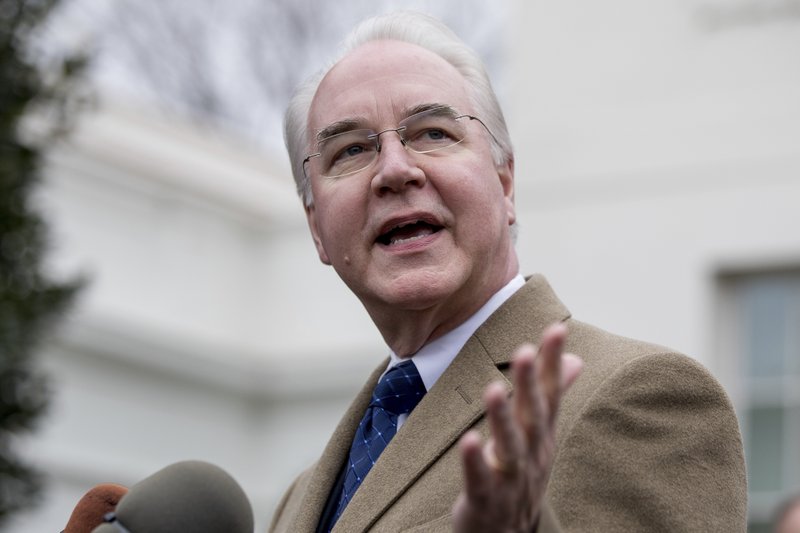
President Donald Trump told Americans he’d do it all on health care: “insurance for everybody,” better coverage and lower consumer costs. By the reckoning of nonpartisan budget analysts at Congress, that’s not what will happen if the Republican bill he’s backing becomes law. The Congressional Budget Office is respected for nonpartisan rigor in its estimates of the costs and impacts of legislation, but no projection is infallible — particularly when it comes to large, complex programs. For example, the agency overstated the number of people expected to buy insurance under President Barack Obama’s health care law, misjudging how many would join because of the threat of tax penalties. A look at how statements by Trump and his team compare with the CBO’s estimates: TRUMP: “We’re going to have insurance for everybody. There was a philosophy in some circles that if you can’t pay for it, you don’t get it. That’s not going to happen with us.” — to The Washington Post, Jan. 15. CBO: It estimates the bill would leave 14 million fewer people insured in the first year, 24 million fewer by 2026. In the first year, the biggest reason for fewer insured people would be the repeal of penalties that Obama’s law imposes on uninsured consumers deemed able to afford coverage. Republicans don’t see a problem with that, arguing that the government should not mandate coverage. But CBO said other consumers would decide to go without coverage in the first year because of higher premiums. In following years the main reason for a drop in the number of insured would be that the Republican bill scales back Medicaid for low-income Americans. ___ TRUMP: People covered under the law “can expect to have great health care. It will be in a much simplified form. Much less expensive and much better… lower numbers, much lower deductibles.” CBO: It says cost-sharing payments in the individual market, including deductibles, “would tend to be higher than those anticipated under current law.” Cost-sharing subsidies would be repealed in 2020, “significantly increasing out-of-pocket costs for nongroup (private) insurance for many lower-income enrollees.” ___ TRUMP, at a Cabinet meeting Monday: “Obamacare, all of a sudden, the last couple of weeks, is getting a false rep that maybe it’s OK. It’s not OK, it’s a disaster and people understand that it’s failed and it’s imploding. And if we let it go for another year, it’ll totally implode.” CBO: Not in the view of the budget experts. They described the market for individual policies under Barack Obama’s health care law as “stable.” They said it is likely to remain stable under the proposed GOP replacement legislation, too. ___ TOM PRICE, health and human services secretary: “I firmly believe that nobody will be worse off financially in the process that we’re going through.” — NBC’s “Meet the Press,” Sunday. CBO: There are losers as well as winners, the analysts found. Generally, older people are bound to face higher costs because the legislation would let insurance companies charge them up to five times more for premiums than they charge young people. They can only be charged three times more now. The bottom line, the analysts say, would be “substantially reducing premiums for young adults and substantially raising premiums for older people.” ___ MICK MULVANEY, Trump’s budget director: “Actually I don’t think the costs will go up at all.” — ABC’s “This Week,” Sunday. CBO: It estimates that some costs indeed will go up, at least for a few years. The analysts say average premiums in the private insurance market would rise in 2018 and 2019 by 15 percent to 20 percent, compared with current law, then start to come down. By 2026, average premiums could be 10 percent lower, compared with current law. One reason: insurers could eliminate a current requirement to offer plans that cover a set percentage of the cost of certain benefits. Republished with permission of The Associated Press.
Congress’ analyst: Millions to lose coverage under GOP bill
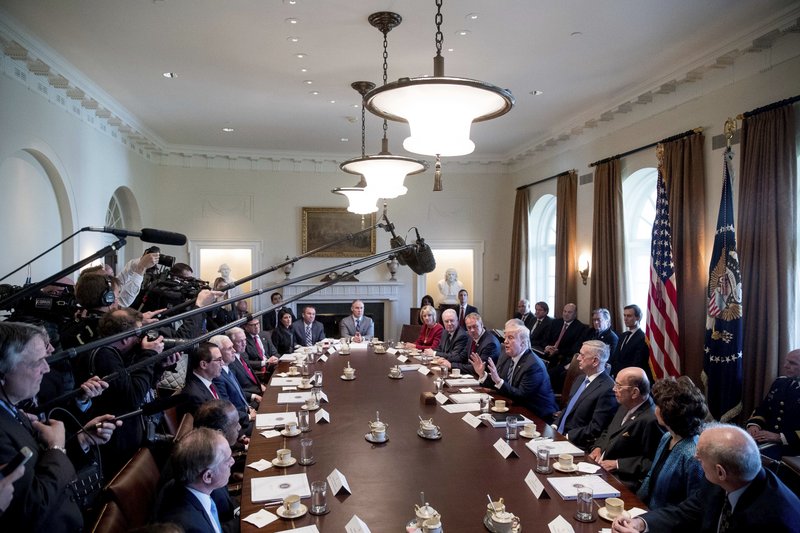
Fourteen million Americans would lose coverage next year under House Republican legislation remaking the nation’s health care system, and the number would balloon to 24 million by 2026, Congress’ budget analysts projected Monday. Their report deals a stiff blow to a GOP drive already under fire from both parties and large segments of the medical industry. The Congressional Budget Office report undercuts a central argument President Donald Trump and Republicans have cited for swiftly rolling back the 2010 health care overhaul: that the insurance markets created under that statute are “a disaster” and about to implode. The congressional experts said that largely would not be the case, that the market for individual policies “would probably be stable in most areas under either current law or the (GOP) legislation.” The report also flies in the face of Trump’s talk of “insurance for everybody,” which he stated in January. He has since embraced a less expansive goal — to “increase access” — advanced by House Speaker Paul Ryan and other Republicans. Health secretary Tom Price told reporters at the White House the report was “simply wrong” and that he disagreed “strenuously,” saying it omitted the impact of additional GOP legislation and regulatory changes that the Trump administration plans for the future. Still, the budget office’s estimates provide a detailed, credible appraisal of the Republican effort to unravel former President Barack Obama‘s 2010 overhaul. The office has a four-decade history of even-handedness and is currently headed by an appointee recommended by Price when he was a congressman. Trump has repeatedly attacked the agency’s credibility, citing its significant underestimate of the number of people who would buy insurance on state and federal exchanges under “Obamacare.” On the plus side for Republicans, the budget office said the GOP measure would reduce federal deficits by $337 billion over the coming decade. That’s largely because it would cut the federal-state Medicaid program for low-income Americans and eliminate subsidies that Obama’s law provides to millions of people who buy coverage. It also said that while the legislation would push premiums upward before 2020 by an average of 15 to 20 percent compared to current law, premiums would move lower after that. By 2026, average premiums for individuals would be 10 percent lower than under Obama’s statute, it said. The GOP bill would obliterate the tax penalties Obama’s law imposes on people who don’t buy coverage, and it would eliminate the federal subsidies reflecting peoples’ income and premium costs for millions. It instead would provide tax credits based largely on recipients’ ages, let insurers charge more for older people and boost premiums for those who let coverage lapse. It would phase out Obama’s expansion of Medicaid to 11 million additional low earners, cap federal spending for the entire program, repeal taxes the statute imposes and halt federal payments to Planned Parenthood for a year. Administration officials took strong issue with the budget office’s projections of lost coverage. “We believe that our plan will cover more individuals and at a lower cost and give them the choices that they want,” Price said. And House Speaker Ryan said in a statement the GOP legislation “is not about forcing people to buy expensive, one-size-fits-all coverage. It is about giving people more choices and better access to a plan they want and can afford.” In fact, on the Fox News Channel, he said the CBO report “exceeded my expectations.” Not in a good way, Democrats said. Senate Minority Leader Chuck Schumer of New York said the projections show “just how empty the president’s promises, that everyone will be covered and costs will go down, have been..” “I hope they would pull the bill. It’s really the only decent thing to do,” said House Minority Leader Nancy Pelosi of California. The American Medical Association, which has opposed the Republican bill because it would reduce coverage, said the report shows the legislation would cause “unacceptable” consequences. “ Two House committees approved the legislation last week, and Ryan wants to bring it to the full House next week. Though many Republicans back the bill, conservatives say it doesn’t go far enough in repealing Obama’s law while moderates whose states used the statute to expand Medicaid don’t want people losing coverage. GOP leaders hope the Senate will consider the measure before breaking for an early April recess. Opposition from both ends of the Republican spectrum in that chamber suggests senators might demand significant changes. The budget office attributed projected increases in uninsured Americans to the GOP bill’s elimination of tax penalties for people who don’t buy insurance, to reduced federal subsidies for many people who buy policies and to the reductions in Medicaid. By 2026, the office estimated, a total of 52 million people would lack insurance, including 28 million expected to lack coverage under Obama’s statute. Even though Republican tax credits would be less generous than those under Obama’s law, the combination of those credits and other changes to lower premiums would attract enough healthy people to stabilize markets under the new plan, the report said. The budget office sees federal spending on Medicaid declining by $880 billion over the coming decade — about 25 percent lower than current projections. That would push about 14 million low-income people off the federal-state program. Though average premiums are ultimately expected to fall, that would vary for people of different ages because compared to Obama’s law Republicans would let older people be charged more. The report estimates that individuals’ out-of-pocket costs under the GOP bill “would tend to be higher than those anticipated under current law.” That runs counter to another claim from the president, that his health care plan would offer “much lower deductibles.” CBO had predicted that 23 million people would be enrolled under Obama’s law, but the number proved to be about 12 million — largely because CBO overestimated the extent to which the individual mandate would prompt them to buy coverage. Republished with permission of The Associated Press.
Health care overhaul scores early triumph despite opposition
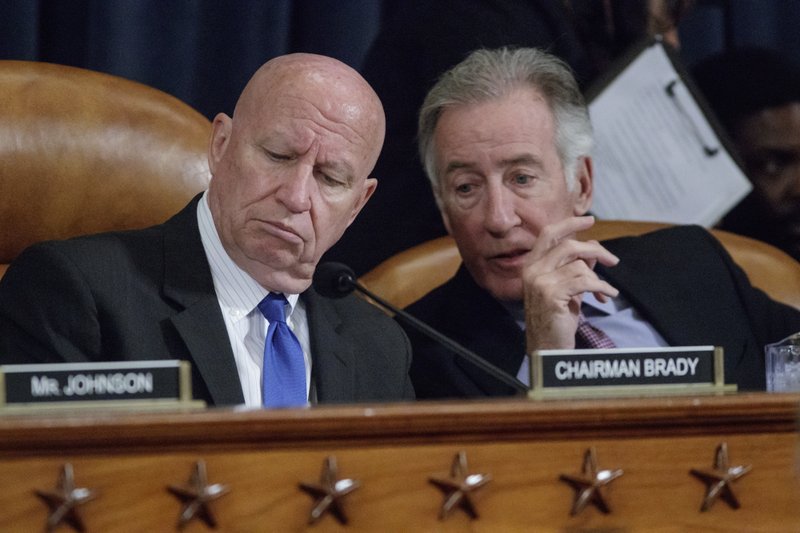
House Republicans scored a pre-dawn triumph Thursday in their effort to scuttle former President Barack Obama‘s health care overhaul, but it masked deeper problems as hospitals, doctors and consumer groups mounted intensifying opposition to the GOP health care drive. After nearly 18 hours of debate and over two dozen party-line votes, Republicans pushed legislation through the Ways and Means Committee abolishing the tax penalty Obama’s statute imposes on people who don’t purchase insurance and reshaping how millions of Americans buy medical care. It was a victory of high symbolism because Obama’s so-called individual mandate is perhaps the part of the statute that Republicans most detest. Even so, the White House and Republican leaders confront a GOP and outside groups badly divided over the party’s high-stakes overhaul crusade. The American Medical Association, the American Hospital Association and AARP, the nation’s largest advocacy group for older people, were arrayed against the measure. Seven years ago their backing was instrumental in enacting Obama’s health care statute, which President Donald Trump and Republicans are intent on erasing. The hospitals — major employers in many districts — wrote lawmakers complaining about the bill’s cuts in Medicaid and other programs and said more uninsured Americans seem likely, adding, “We ask Congress to protect our patients.” Groups representing public, children’s, Catholic and other hospitals also expressed opposition. America’s Health Insurance Plans, representing insurers, praised the legislation’s elimination of health industry taxes but warned that proposed Medicaid changes “could result in unnecessary disruptions in the coverage and care beneficiaries depend on.” The legislation would defang Obama’s requirement that everyone buy insurance by repealing the tax fines imposed on those who don’t. That penalty has been a stick aimed at pressing healthy people to purchase policies. The bill would replace income-based subsidies Obama provided with tax credits based more on age, and insurers would charge higher premiums for customers who drop coverage for over two months. “That’s what this whole bill was about, kicking people who weren’t politically popular,” Ways and Means Chairman Kevin Brady, R-Texas, said of Obama’s overhaul. Ways and Means members worked till nearly 4:30 a.m. EST before approving the final batch of tax provisions in a party-line 23-16 vote. The Energy and Commerce Committee panel continued working Thursday morning, tackling a reshaping of Medicaid. Conservative lawmakers and allied outside groups claimed the bill took too timid a whack at Obama’s law. Numerous GOP centrists and governors were antagonistic, worried their states could lose Medicaid payments and face higher costs for hospitals having to treat growing numbers of uninsured people. Top Republicans knew if the upheaval should snowball and crush the legislation it would be a shattering defeat for Trump and the GOP, so leaders hoped approval by both House committees would fuel momentum. In words aimed at recalcitrant colleagues, House Speaker Paul Ryan, R-Wis., told reporters: “This is what good, conservative health care reform looks like. It is bold and it is long overdue, and it is us fulfilling our promises.” The last was a nod to campaign pledges by Trump and many GOP congressional candidates. Ramping up pressure on GOP dissidents, a political group close to House Republican leaders said it is launching a TV ad campaign targeting 30 conservative lawmakers, mostly members of the hard line conservative House Freedom Caucus. The American Action Network said it was spending $500,000 on an ad contrasting the Republican bill with Obama’s law. It ends with the announcer urging viewers to tell their representative “to vote with President Trump.” Outnumbered Democrats used the panels’ meetings for political messaging, futilely offering amendments aimed at preventing the bill from raising deficits, kicking people off coverage or boosting consumers’ out-of-pocket costs. They tried unsuccessfully to insert language pressuring Trump to release his income tax returns, and failed to prevent Republicans from restoring insurance companies’ tax deductions for executive salaries above $500,000 — a break Obama’s law killed. There were signs of growing White House engagement, and perhaps progress. Trump met at the White House late Wednesday with leaders of six conservative groups that have opposed the GOP legislation, and several voiced optimism afterward. “I’m encouraged that the president indicated they’re pushing to make changes in the bill,” said David McIntosh, head of the Club for Growth, though he provided no specifics. The extra billions Washington has sent states to expand the federal-state Medicaid program would begin ending in 2020, and spending on the entire program would be capped at per-patient limits. Around $600 billion in 10-year tax boosts that Obama’s statute imposed on wealthy Americans and others to finance his overhaul would be repealed. Insurers could charge older customers five times more than younger ones instead of the current 3-1 limit, but would still be required to include children up to age 26 in family policies, and they would be barred from imposing annual or lifetime benefit caps. The measure would also repeal taxes Obama’s law imposed on segments of the medical industry to help pay for his statute’s expanded coverage. Democrats said the Republicans would yank health coverage from many of the 20 million Americans who gained it under Obama’s statute, and drive up costs for others because the GOP tax breaks would be skimpier than existing subsidies. And they accused Republicans of hiding bad news by moving ahead without official estimates from the nonpartisan Congressional Budget Office on the bill’s cost to taxpayers and anticipated coverage. “You can expect more town hall meetings you won’t want to go to,” said Rep. Sander Levin, D-Mich., a reference to liberal activists who hounded Republicans during last month’s recess. Republished with permission of The Associated Press.
New study: Donald Trump to inherit $559B deficit, stable economy

President Donald Trump has inherited a stable economy and a government that is on track to run a $559 billion budget deficit for the year, congressional analysts said Tuesday. The estimates from the nonpartisan Congressional Budget Office say the economy will hold relatively steady, with economic growth rising slightly to 2.3 percent this year and unemployment averaging less than 5 percent for the duration of Trump’s term. Trump is promising higher growth as his administration curbs regulations, overhauls the tax code, and repeals the Affordable Care Act, former President Barack Obama‘s signature accomplishment. The latest CBO figures are in line with previous projections. The deficit continues to be an intractable problem that would steadily worsen over time and CBO continues to warn that such rising deficits and debt “would have significant consequences” and act as a drag on the economy if left unchecked. “After declining for several years, federal budget deficits are on a path to rise during the next decade,” the report says. The projections come as Trump and Republicans controlling Congress are working to repeal much of President Barack Obama’s signature health care law, boost the Pentagon budget, and reform the loophole cluttered tax code. Balancing the budget would require crushing cuts to domestic agencies and big health programs like Medicare. Trump’s nominee to run the White House Budget office, Rep. Mick Mulvaney, R-S.C., testified before the Senate Budget Committee Tuesday morning. His remarks offered few clues about the direction the new administration will take in tackling the deficit. Trump has made clear that he’s not interested in unpopular cuts to Medicare and Social Security, though reductions in the Medicaid program for the poor, disabled and elderly are being contemplated. Obama inherited an economy in recession and deficits exceeding $1 trillion a year. Deficits moved lower over his two terms, registering $587 billion last year. For Trump, however, CBO says that “the economy will grow, during the coming decade, at roughly the modest rate observed since the end of the 2007-2009 recession,” the report says. But there’s also the risk of a downturn in the economy after a recovery that spanned Obama’s tenure. Economists generally prefer to measure the deficit against the size of the economy. By that gauge, the current-year deficit would register 2.9 percent of gross domestic product, a level that many economists say is sustainable, at least in the short term. But deficits would gradually rise as a percentage of GDP, which CBO warns could provoke a debt crisis in coming years and limit the options of policymakers to respond to unanticipated challenges. Budget Committee Chairman Diane Black, R-Tenn., called the latest study “Obama’s legacy of an unsustainable national debt and an economy that’s leaving too many people behind.” Black promised that Trump and the Republicans controlling Congress “are preparing pro-growth legislation that will get our economy moving at full steam again and tackle our fiscal problems head-on.” The health insurance markets created under so-called Obamacare will average 10 million customers a month signed up this year, CBO said. That’s fewer than the congressional agency had previously estimated and also less than what the outgoing Obama administration projected, an average of 11.4 million a month. Medicaid expansion — the other arm of Obama’s program — will cover an average of 12 million people a month this year, CBO said. Republished with permission of The Associated Press.
Bradley Byrne: A bill that can save lives

I met a young boy named Gabe Griffin a few years back at Battleship Park in Mobile. His family and friends had organized a cross country bike ride that started in Oregon and ended on Alabama’s Gulf Coast. The goal of the ride was to raise awareness about Duchenne muscular dystrophy, a rare disease in young boys that causes your muscles to weaken rapidly. Despite suffering from Duchenne, Gabe was thrilled that day to be greeted by the University of South Alabama mascots, the Azalea Trail Maids, and local firefighters. I will never forget the smile on Gabe’s face on that special day. Gabe was on my mind last week as I cast my vote in favor of the 21st Century Cures Act. This bill brings health research and the drug approval process into the 21st Century in order to boost research into diseases, like Duchenne, that impact far too many families. The bill provides the National Institutes of Health with over $4 billion in new funding. Over $1 billion will go toward the new Precision Medicine Initiative to drive research into diseases, over $1 billion will go toward cancer research, and over $1 billion will go toward the BRAIN initiative to improve understanding of diseases, like Alzheimer’s. The 21st Century Cures Act also allows for the Food and Drug Administration (FDA) to expedite the approval process for breakthrough medical treatments, drugs, and devices. These reforms help cut through the red tape and bureaucracy that has limited the potential for important medical breakthroughs. The bill encourages innovation and research through a number of new strategies. For example, 21st Century Cures authorizes innovation prize competitions to advance biomedical science for diseases that are serious and represent a significant burden. The bill also creates a new “Next Generation of Researchers Initiative” to encourage younger students to enter the field of medical research. Another important reform is that 21st Century Cures empowers patients to take part in research and clinical trials. This change allows patients to voluntarily provide hospitals and research institutions with authorization to use their personal health data for research purposes. The bill also requires the FDA to incorporate patient input and experiences into their decision-making process. All of these reforms ensure that the United States remains a global leader in medical innovation, which in turn protects and helps create new jobs here at home. The bill also includes important reforms to update our nation’s mental health programs. Mental health reform has long been a priority for me, and I know these reforms will go a long way toward changing the way we treat mental illness in America. Another important issue addressed in the bill is the opioid prescription drug crisis impacting communities all across the country. Approximately 46,000 Americans die each year because of prescription drug abuse, so I’m pleased to report the bill includes $1 billion in new grants that can be given to states to help them combat opioid abuse. Importantly, all new spending in the bill is offset, and the Congressional Budget Office estimates the bill will actually result in government savings. The 21st Century Cures Act has been years in the making. Gabe, and many others who suffer from major diseases, have been traveling to Washington for over two years to advocate for this critical legislation. Legislation that gives them hope. It is not often that Congress passes legislation that can actually save lives, but that is exactly what the 21st Century Cures Act has the potential to do. Just as important though, it also gives hope to people like Gabe and his family that a cure can be found. And sometimes, hope is exactly what you need. • • • Bradley Byrne is a member of U.S. Congress representing Alabama’s 1st Congressional District.
Mo Brooks takes to the House floor to ask “Who will bail out America?”
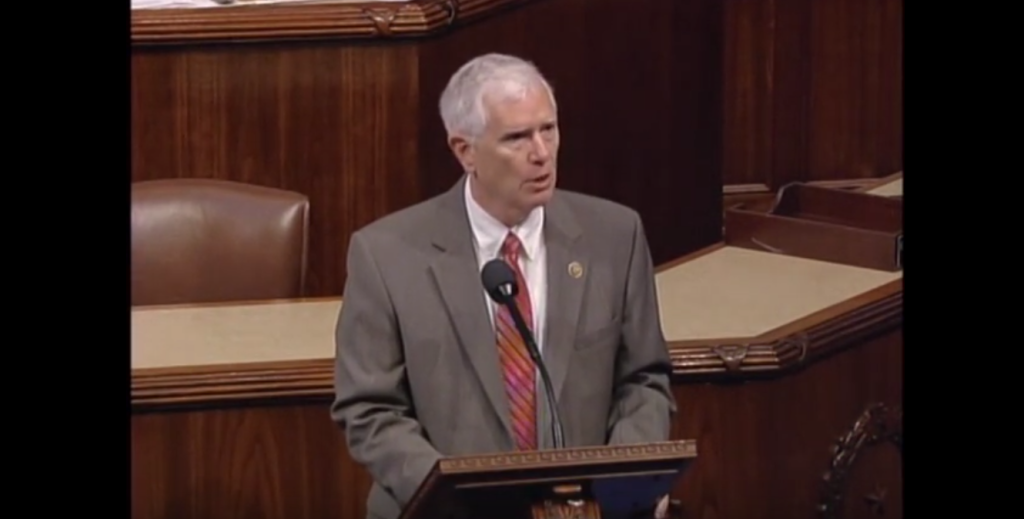
The United States may be following in the footsteps of Puerto Rico — a territory that has had its credit rating cut to “junk bond status” and is defaulting on its $70 billion debt — if it doesn’t balance the budget soon Congressman Mo Brooks (AL-05) warned Wednesday. Brooks took to the House floor to issue his warning as part of a continued series of floor speeches highlighting “bad example” countries who are reaping the consequences of financially irresponsible leadership. “Puerto Rico, like America, suffers from a bloated central government, welfare programs that undermine the work ethic, decades of financial mismanagement by elected leaders, and a resulting anemic economy and shrinking job market that causes roughly 7,000 citizens to flee Puerto Rico each month,” Brooks said on the House floor. Brooks continued, “Puerto Rico’s debt defaults and resulting economic morass have forced Puerto Rico to delay tax refunds, fire public-sector workers, raise sales taxes to a record 11.5%, and close over 100 schools. Unfortunately, these austerity measures, and more, are inadequate because Puerto Rico’s self-serving and financially irresponsible elected officials waited too long. Puerto Rico still cannot pay its bills or creditors.” The Huntsville Congressman explained America is on the same path of fiscal irresponsibility as Puerto Rico, having blown through the $19 trillion debt mark and is rapidly approaching on the $20 trillion debt mark. “Who will bail out America when America defaults on its debt?” Brooks asked on the floor. According to the nonpartisan Congressional Budget Office America faces an unending string of trillion dollar a year deficits beginning a mere six years from now and that America’s debt will blow through the $29 trillion debt mark in a decade. “If voters do not elect financially responsible officials to Washington, America will endure the same debilitating bankruptcy and insolvency that wreaks havoc in Greece and Puerto Rico — with one major difference — unlike Greece, which has been bailed out three times by the European community, and unlike Puerto Rico, which may yet be bailed out by American taxpayers, there is no one who can, or will, bail out America!” Brooks concluded. In his first two speeches in the series, Brooks singled out Greece and Venezuela — both countries with massive, unsustainable debt — and addressed America’s growing annual deficits and accumulated debt, appropriations bills to fund the government, the debt ceiling, and how these issues interplay will significantly impact America’s future. Watch Brooks’ latest speech below:
Bradley Byrne: House should use all tools to dismantle Obamacare
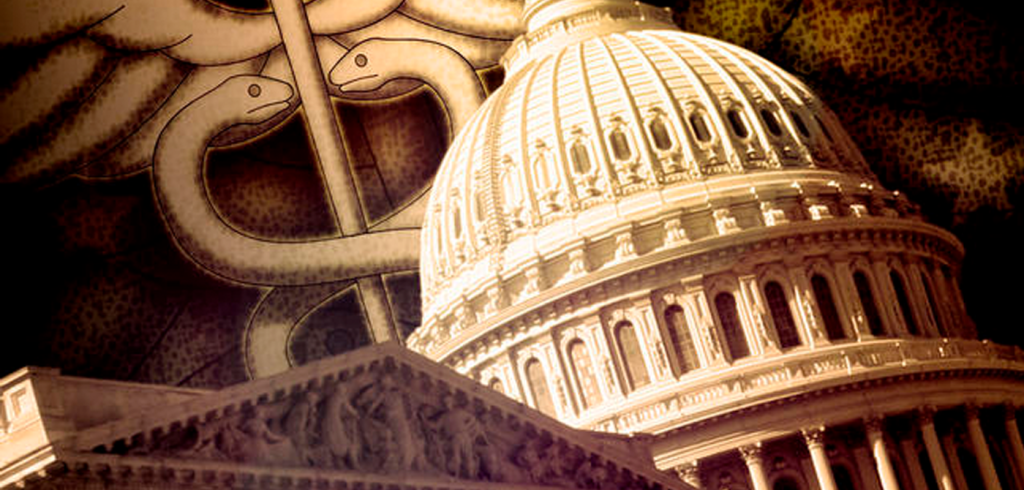
When Republicans took control of the Senate last year, we looked forward to sending commonsense, conservative bills to the President’s desk. This process would put pressure on the President to decide whether he would sign or veto the bills. In the House, we have held up our end of the deal, sending countless conservative-reform bills to the Senate. Unfortunately, those bills have died in the Senate due to their arcane rules. The Senate requires 60 votes to begin debate on most legislation, and there are currently only 54 Republican Senators. Senate Democrats have time and time again stood in the way of even allowing debate to begin on things like defunding Planned Parenthood, cutting funding to “sanctuary cities,” and even passing basic government funding bills. Unless the Senate changes their rules, this stalemate is likely to continue. That’s why my colleagues and I went to work to find other legislative tools to get around the Senate’s rules. That’s where something know as budget reconciliation comes in, which only requires 51 votes in the Senate to pass a bill. Here’s how it works. The 1974 Congressional Budget Act created a special process for the consideration of reconciliation legislation. Reconciliation is a process reserved exclusively for matters relating to federal spending and cannot be used simply to change federal policy. Reconciliation does have some constraints however. In order to be used, the items included in the bill must be directly related to the federal budget and federal spending. In other words, you cannot use the reconciliation process simply change any federal statute. As we started to work on our reconciliation bill, we decided to focus on two primary areas: dismantling Obamacare and defunding Planned Parenthood. The number one issue I hear from constituents about is still Obamacare. The law is fundamentally broken and has caused health insurance to be unaffordable for too many Americans. The reconciliation legislation would dismantle Obamacare by repealing some of its most important features like the individual mandate, which requires every American to have health insurance, and the employer mandate, which hurts small businesses and costs jobs. Our reconciliation bill also repeals burdensome taxes like the medical device tax and the “Cadillac” tax on high-quality insurance plans. The bill would also eliminate all federal funding from Planned Parenthood and instead divert that money into community health centers, which don’t provide abortion services. Like many Americans, I am outraged by the videos showing Planned Parenthood officials discussing the sale of fetal body parts, and I have pledged to do everything I can to eliminate Planned Parenthood’s funding. This legislation would accomplish just that. Just as important, these commonsense reforms will also help lower spending and reduce the federal deficit. The non-partisan Congressional Budget Office found that passing these changes through reconciliation would reduce the deficit by about $130 billion. So last Friday, the House passed the reconciliation bill by a vote of 240 to 189, and now it is the Senate’s turn to act. They only need 51 votes, so I am hopeful they can pass the bill and send it to the President’s desk. This is probably our best opportunity to dismantle Obamacare and defund Planned Parenthood. Let’s make President Obama decide: will he stand with the American people or will he continue his “my way or the highway” style of governing? Bradley Byrne is a member of the U.S. Congress representing Alabama’s 1st Congressional District.
GOP hopeful Scott Walker offers health plan with tax credits
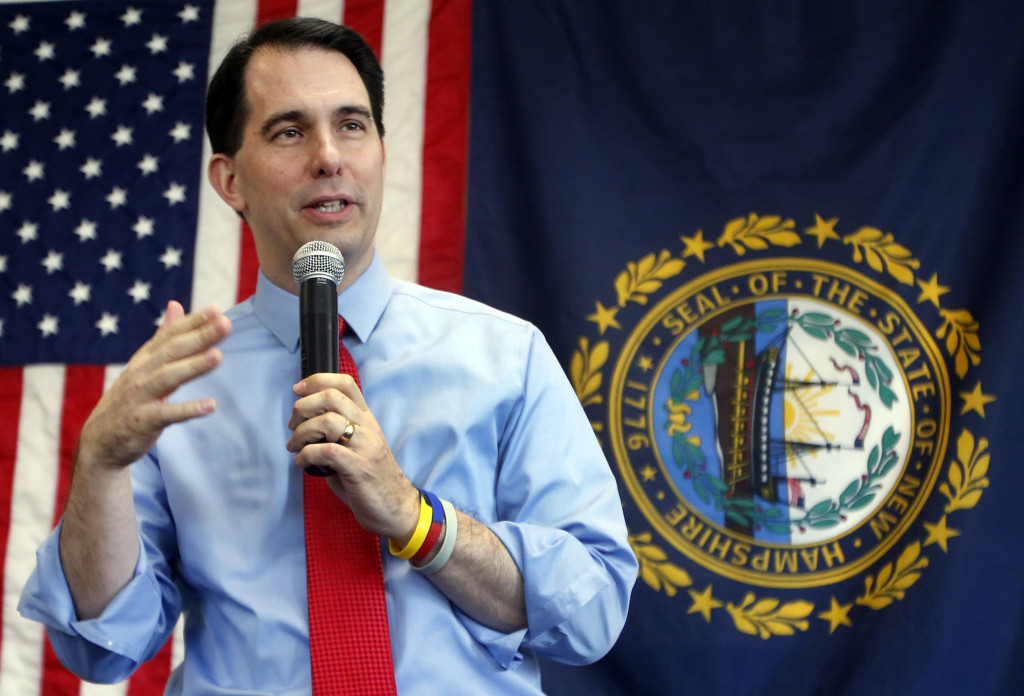
Republican presidential candidate Scott Walker‘s plan for replacing President Barack Obama‘s health care law would extend refundable tax credits to help pay for private health insurance based on age instead of income, restructure Medicaid and allow people to shop for insurance across state lines. The Wisconsin governor provided details of his proposal to The Associated Press in advance of a Tuesday speech in suburban Minneapolis where he was to outline his first major policy initiative of the presidential campaign. Walker’s plan does not include cost figures or an estimate of the number of people who would be covered, making it nearly impossible to compare with current law. For the period from April to June of this year, 11.4 percent of U.S. adults were uninsured, which translates to about 16 million people gaining coverage since the rollout of Obama’s health care law in 2013. Walker’s campaign said the plan would be paid for by eliminating $1 trillion in taxes that are levied under the current law and by making other changes to Medicaid and how health insurance is taxed. The Supreme Court in June upheld a key portion of the Affordable Care Act allowing for federal subsidies to defray the cost of coverage, a major defeat for opponents of the law. Walker and other Republican candidates have insisted they would repeal the law, starting on the first day of a GOP presidency. The biggest hurdle Walker, and any opponent of the law, faces is getting it repealed. That would take 60 votes in the Senate, and Walker’s plan does not address how he would undo the law in any other way. Walker, in excerpts of his speech released by his campaign, blamed fellow Republicans with not doing enough to repeal the law. “Republican leaders in Washington told us during the campaign last year that we needed a Republican Senate to repeal Obamacare,” Walker said in the prepared remarks. “Well, Republicans have been in charge of both houses of Congress since January and there still isn’t a bill on the president’s desk to repeal Obamacare.” Topher Spiro, vice president for health policy at the Center for American Progress, a think tank often aligned with the White House, said Walker’s plan would be a step backward. “The math only adds up if he’s slashing Medicaid and increasing taxes on middle-class people with employer plans,” Spiro said. While the Walker plan would repeal the Affordable Care Act, it appears to use some similar kinds of tools to promote coverage. For example, there would be no requirement for individuals to carry health insurance or face fines, as there is currently. But, in order to be guaranteed affordable coverage without regard to pre-existing medical problems, individuals would have to “maintain continuous, creditable coverage.” There’s merit to Walker staking out his position on the issue, even though he doesn’t explain how the law would be repealed, said economist Douglas Holtz-Eakin, president of the American Action Forum, a center-right think tank. “There’s a lot of this that is fairly standard conservative health policy reform,” Holtz-Eakin said. “The basic plan looks familiar.” Walker, similar to current law, would also provide tax credits to help with the cost of coverage for people whose employers don’t offer insurance. But unlike current law, those credits of between $900 and $3,000 would be based on age and not be keyed to a person’s income. So they may not help low- to moderate-income people as much as the existing tax breaks do. Walker’s plan calls for eliminating unspecified regulations in the current law, a move that Walker claims would lower premiums by 25 percent. Other elements of the plan would include extending a $1,000 refundable tax credit for anyone who signs up for a health savings account, allowing people to shop for health insurance across state lines, reorganizing Medicaid into smaller programs, and giving states more regulatory authority. He would also allow for new health insurance purchasing agreements and deregulate the long-term care insurance market. The reality of outright repealing the law as Walker wants to do is stark: Doing away with it completely would kick 19 million people off insurance in the first year, according to the Congressional Budget Office. Walker isn’t the first Republican to put forward a detailed plan for replacing Obama’s law. Louisiana Gov. Bobby Jindal released his plan last year and Florida Sen. Marco Rubio outlined his approach in an opinion piece published Monday. And while alternatives have been introduced in Congress, none has gotten traction as Republicans have yet to coalesce around any particular idea. Republished with permission of The Associated Press.


